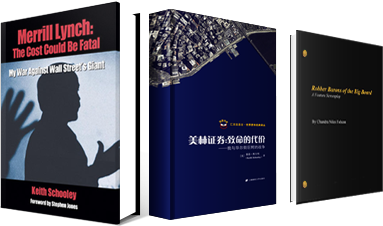 Oklahoma Bar Journal
Oklahoma Bar Journal
August 16, 2003
Merrill Lynch: The Cost Could Be Fatal
By James C. Lang
This reviewer expresses no opinion as to the merits of the litigation by Mr. Schooley, which encompassed a period from approximately 1992 until 2000.
In this book, Mr. Schooley initially addresses his life prior to July 1, 1991, at which time he became a financial consultant trainee with the Merrill Lynch office in Enid. Thereafter, he discusses his employment at Merrill Lynch and his subsequent reporting to management of certain concerns, including allegations of impropriety by certain financial consultants in taking the self-administered life insurance examinations, the unauthorized use of a proprietary country club membership list by management and the falsification of expense reports by management. The author then describes the subsequent investigation of the allegations by Merrill Lynch and his dissatisfaction with the results of the investigation. This dissatisfaction then leads to the submission of a 31-page letter to each member of the Board of Directors, as well as notification to self-regulatory organizations such as the National Association of Securities Dealers and the New York Stock Exchange.
After a confrontation with a supervisor, the author alleges that he was constructively discharged and did not return to the office. Merrill Lynch alleged that he unjustifiably abandoned his position and thereafter, the author filed a lawsuit. After filing suit, the author then spent a substantial amount of time discussing his disappointment in learning that his dispute was subject to an arbitration clause in a U-4 registration form. The arbitration proceeding is then discussed at great lengths with lengthy quotes apparently taken from the arbitration transcript. Finally, the author discusses his disappointment in recovering nothing as a result of the arbitration proceeding and his subsequent disappointment at the lack of any relief afforded by the self-regulatory organizations, as well as governmental agencies.
Having lost at all levels in the arbitration and judicial proceedings, the author, in the last chapter entitled, “Court of Public Opinion, You Be the Judge,” appeals to the court of public opinion to somehow right the alleged wrongs described in the earlier chapters of the book…. [T]he book is well written and mentions a number of prominent Oklahoma lawyers and judges.
